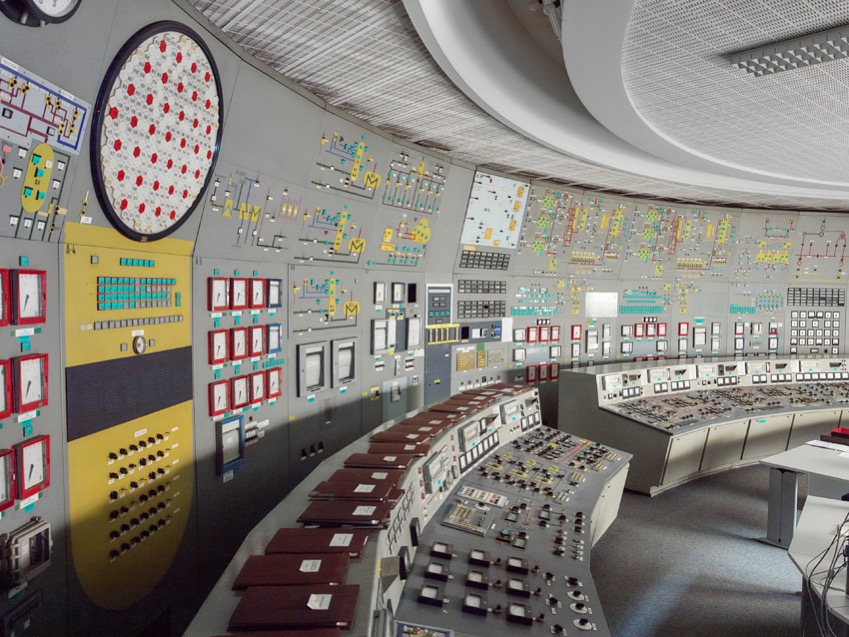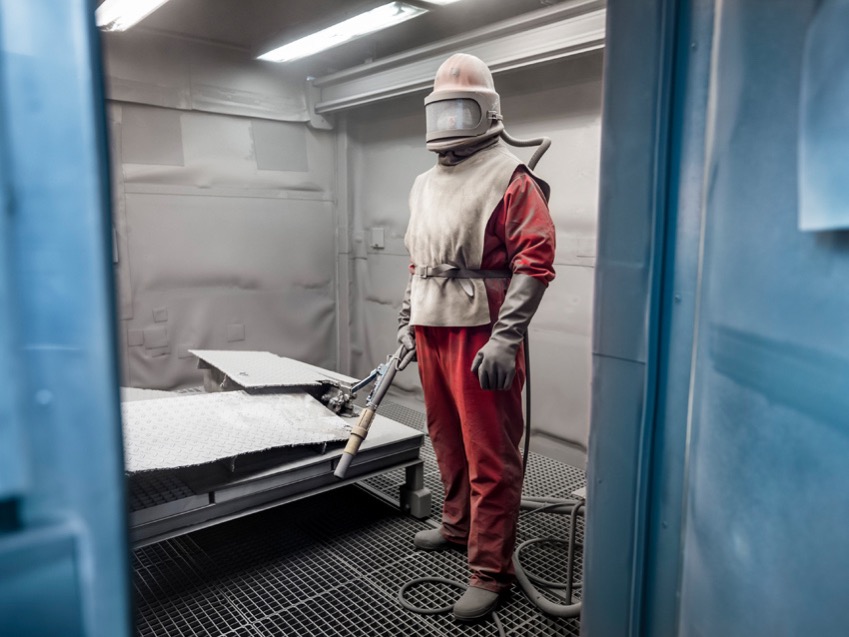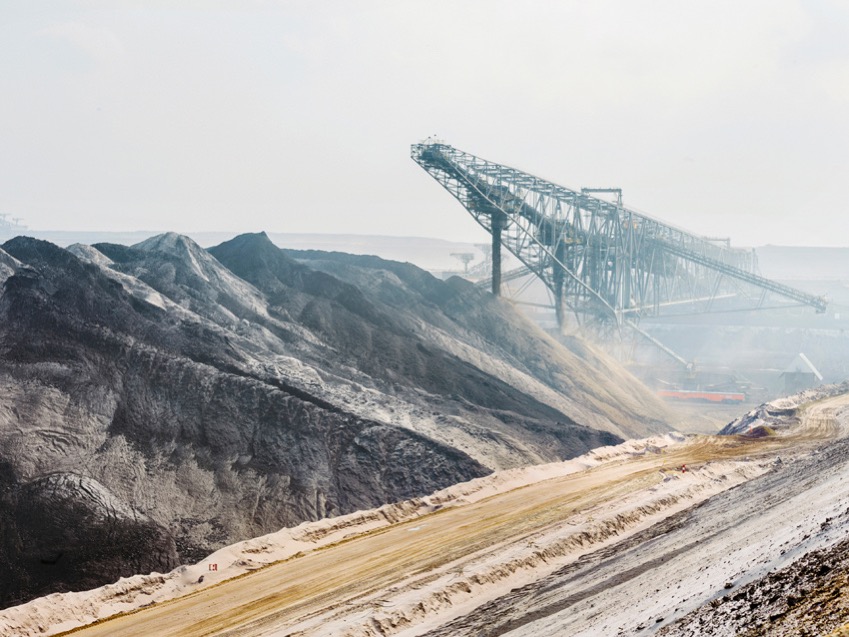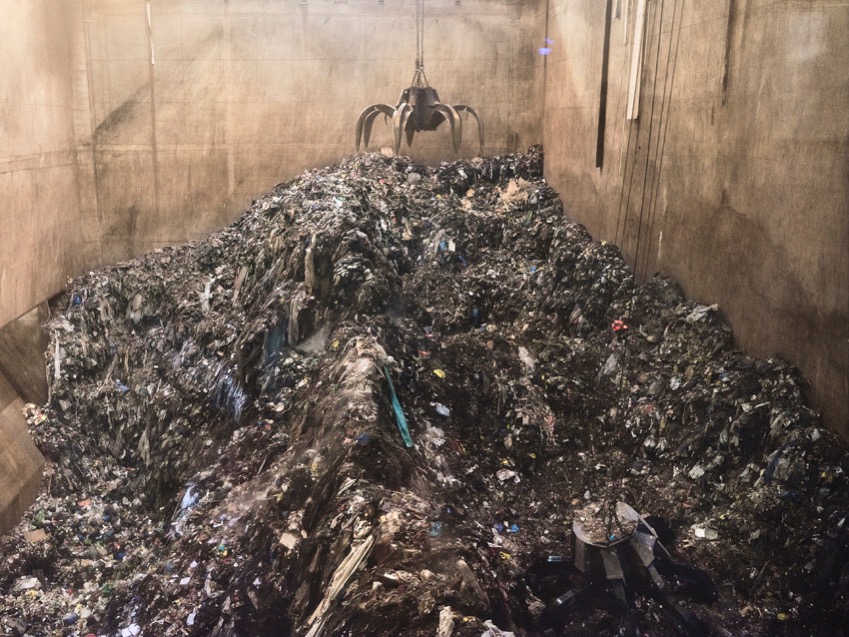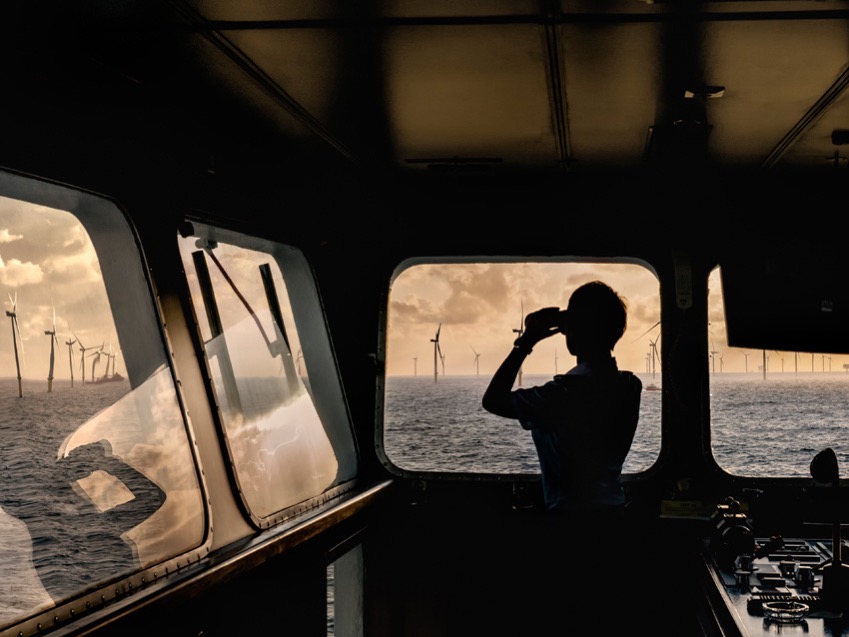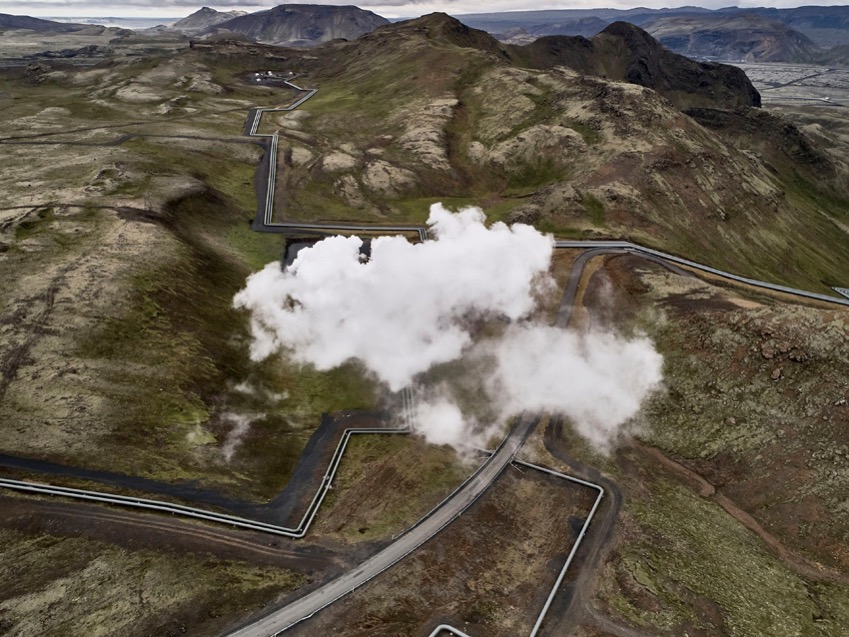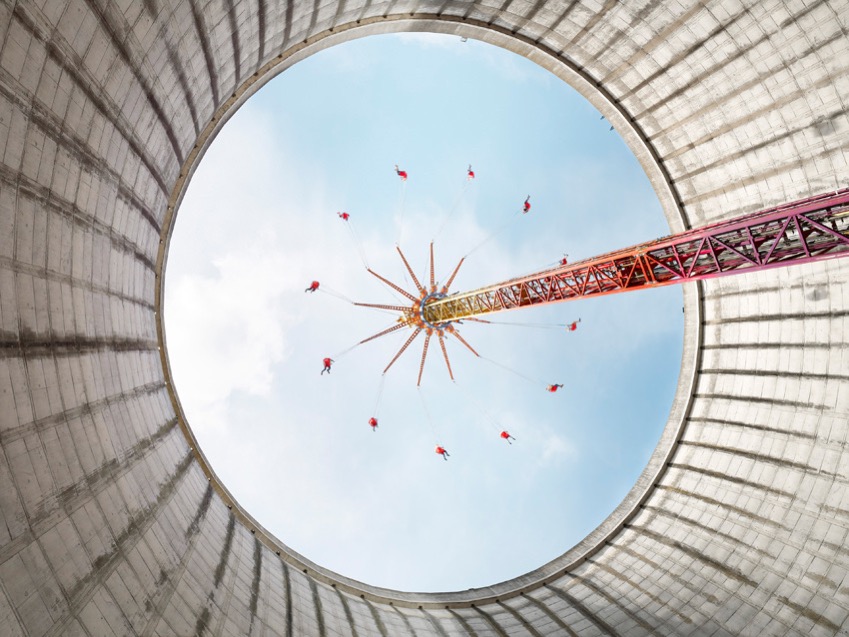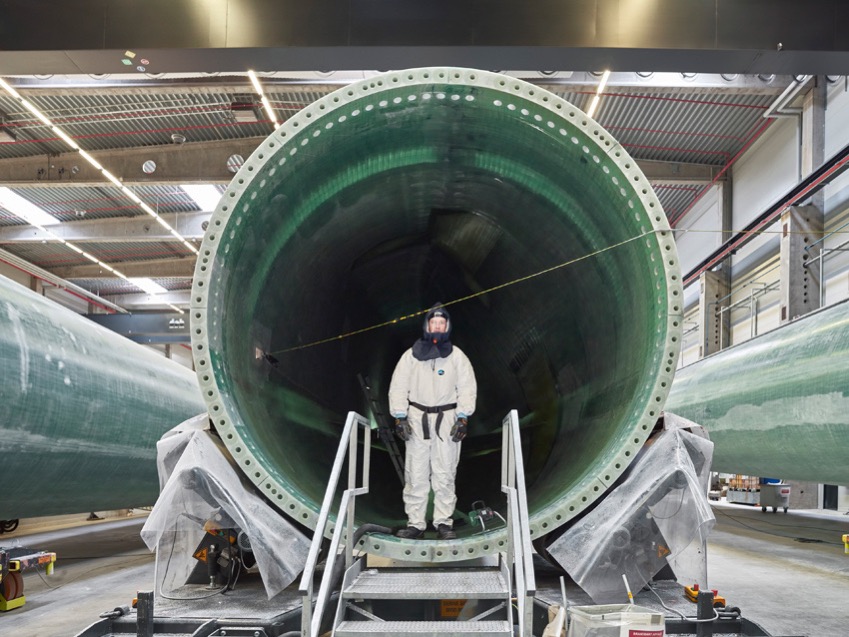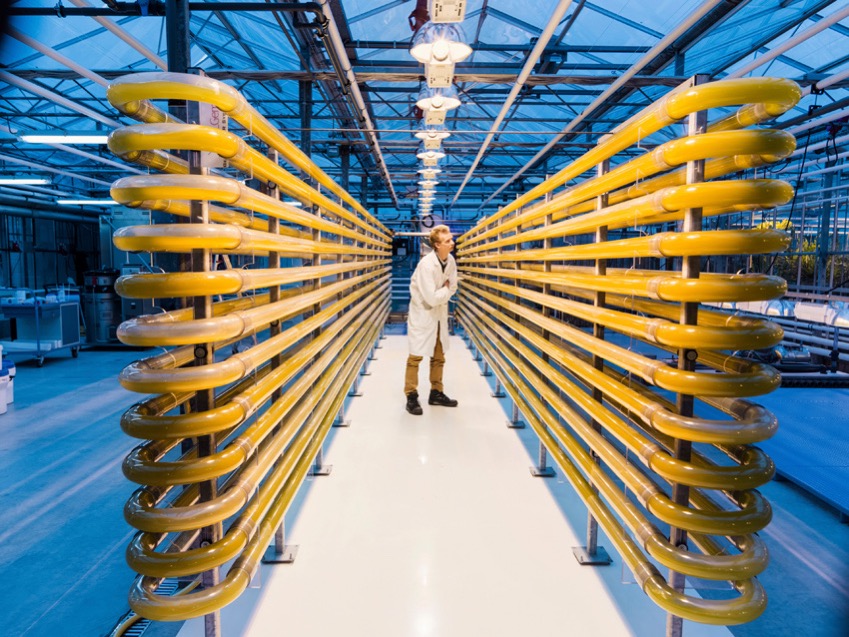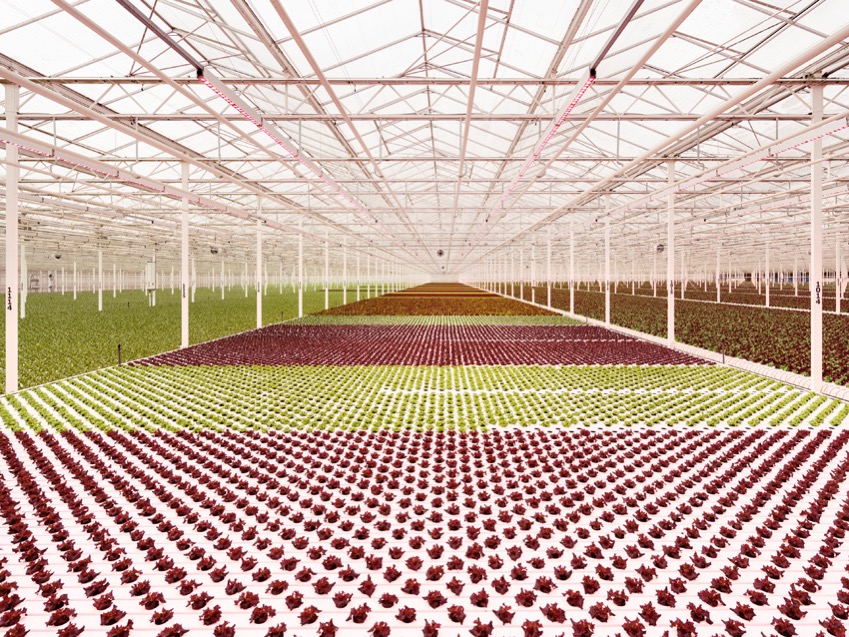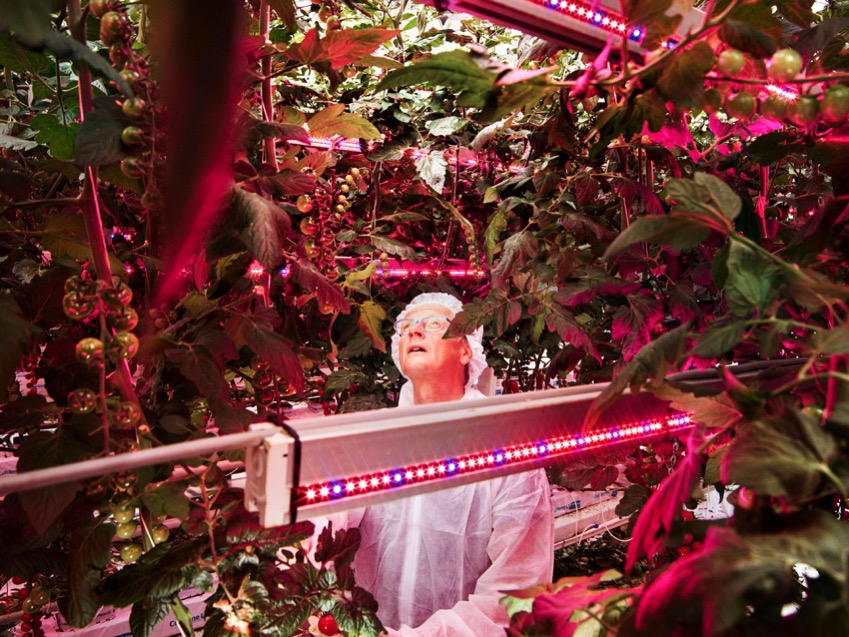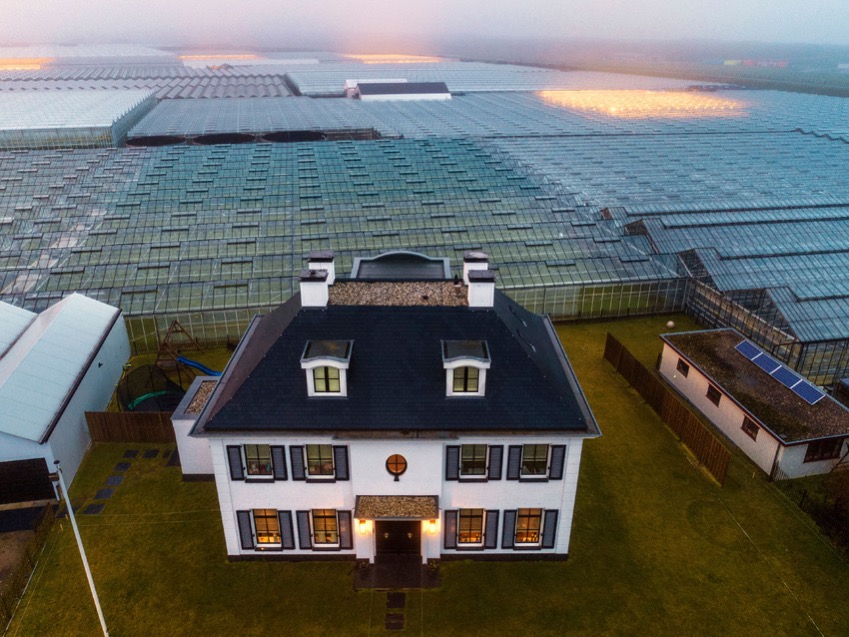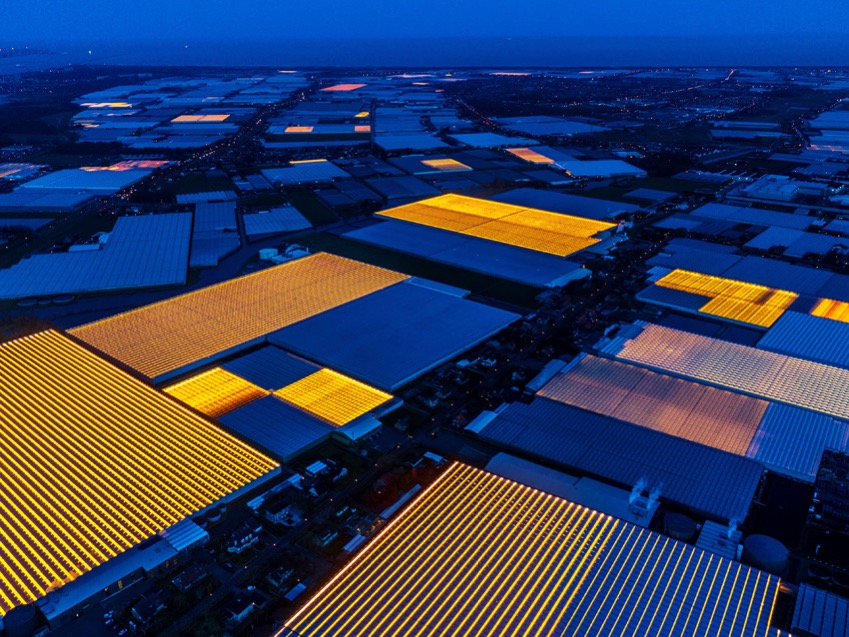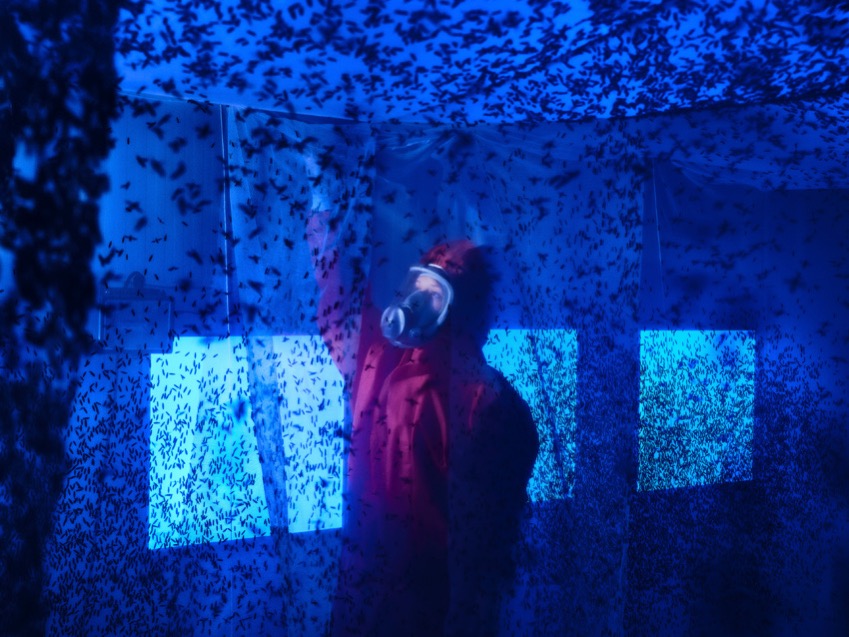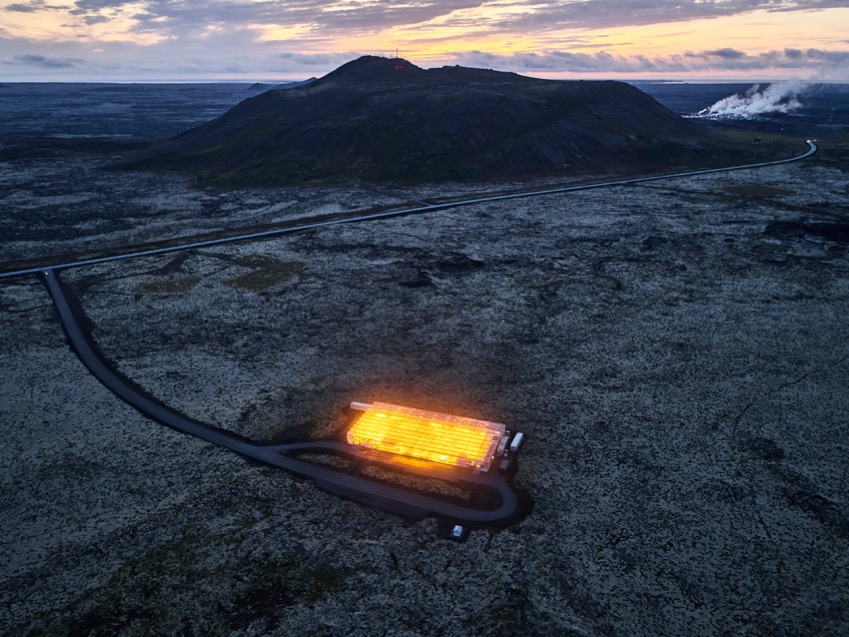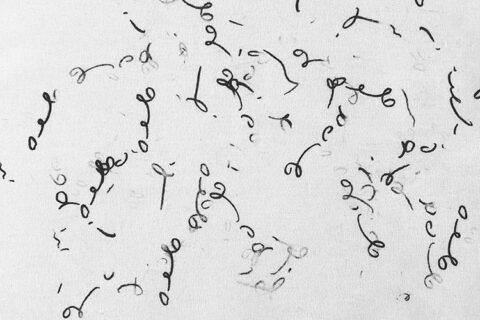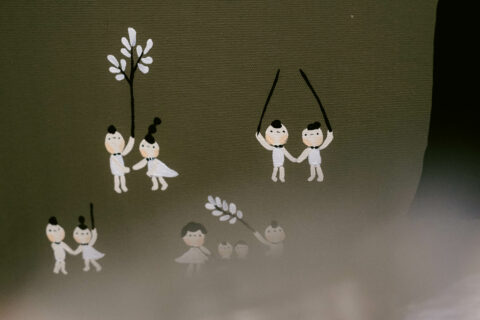對於未來,你想像的生活是怎樣的?世界的動盪不安、疫情下的憂慮和未知,使我們失去了對未來美好的憧憬。在世界停滯不前之時,也給予我們一個前所未有的機會去思考我們的未來,以及如何與大自然和地球重新建立健康的共生關係。
形容自己的風格形容為「紀實藝術攝影」(documentary fine art photography)的意大利攝影師Luca Locatelli,對於現代社會裡「經濟需要保持長期增長」的觀念抱有懷疑態度,他希望借用攝影的方式,讓大眾對人、自然和科技之間的關係展開激烈的討論。Luca畢業後從事了十多年軟件開發,其後成為紀實攝影師,並為《國家地理雜誌》工作。他持續了8年的攝影項目《未來研究》(Future Studies)正是回應我們心中的疑問——探索人類在地球生存的新途徑,以及如何解決我們正在面對的環境問題。這系列更得到今年的LEICA OSKAR BARNACK AWARD(LOBA),因而受到更廣泛的注目。Luca選出了2015年至2019年拍攝作品提交LOBA,主要是關於能源轉型和食物生產的未來。
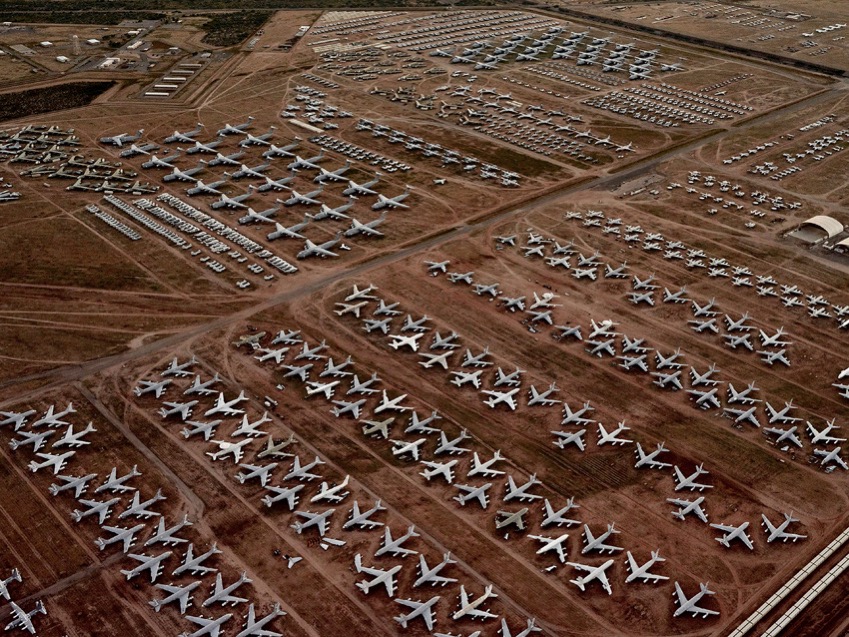
在他的鏡頭下,已關閉的核電站、北海的風力發電廠、德國的黑媒礦場和美國亞利桑那州全球最大的飛機存放設施等震撼地呈現眼前;丹麥最大的廢物能源發電廠、地熱發電廠、荷蘭的藻類公園、英國的昆蟲農場以及冰島的溫室,都如電影畫面般擁有精確的構圖與獨特的色彩,加上偶爾出現神秘莫測的科學家和研究人員,組成這些奇幻而美麗的影像。一如電影大師Christopher Nolan的《Interstellar》,讓人震撼的科幻場景原來存在於地球之上,激起人們對這陌生又充滿可能性的世界的好奇心。
《未來研究》以一趟影像的旅程去探索21世紀的氣候危機的解決方案,讓我們看到未來生活的可能性,並萌生新的希望。正如Luca所說,只有在對環境產生最少的負擔下,人類才有可能取得真正的進步和可持續發展的未來。
What future can you imagine for yourself? In a time when the world is in turmoil and the pandemic is bringing fear and uncertainty, we might feel powerless over the direction of life. But it is also a time like this that gives us an unprecedented opportunity to take a break and reflect on our attitudes about the future and think about how we can re-establish a healthy relationship with nature and the planet.
The Italian photographer, Luca Locatelli, who defines his own photographic style as “documentary fine art photography,” is skeptical about the concept of economic growth. He aims to open up debates about our relationship with people, nature, and science-technology through photography. Before diving into documentary photography and becoming a contributor to National Geographic Magazine, Locatelli has worked as a software developer for over a decade. Eight years ago, he began to work on his long-term project, Future Studies, which eventually won the Leica Oskar Barnack Award (LOBA) 2020. The highly acclaimed photo series is a research into the new ways of human survival on the planet and how we can deal with the various environmental problems that we are facing. The selection of photos that was submitted to the LOBA was produced between 2015 and 2019, and is primarily dedicated to energy turnaround and future of food production.
Locatelli documented the shut-down nuclear power plants, offshore wind farms in the North Sea, a brown coal mine in Germany, and the world’s largest aircraft storage facility in Arizona, USA. He also photographed at Denmark’s largest waste-to-energy power plant, a geothermal power plant, an algae park in the Netherlands, an insect farm in Great Britain, and a greenhouse in Iceland. The stunning images he captured at these places have precise photographic composition and unique color that are comparable to motion pictures, and the occasional appearance of the mysterious-looking scientists and researchers in the images has added an eccentric touch to the collection. Who’d have imagined that those spectacular scenes from sci-fi movies like Christopher Nolan’s Interstellar would actually exist in this world? Our planet is indeed full of surprises.
Future Studies is a visual journey to explore the solutions to the 21st century’s climate crisis. It allows us to see the endless possibilities that lie ahead and give us hope for a better future. As Locatelli once said, real progress and sustainable future development are only possible with a minimal burden on the environment.
O:OBSCURA
L:Luca Locatelli
O:可以分享你的攝影項目《Future Studies》的想法嗎?
L:《Future Studies》是一個實行了超過8年的研究,關於人、科技和環境之間的關係。人們對地球和人類的未來愈來愈擔憂,身為紀實攝影師,我的目標是為我們正在面對的環境危機尋找最可取的解決方案。
O:為甚麼你對這方面有興趣?
L:我的攝影生涯由巴西的亞馬遜雨林開始,當時我參與了人道主義和環境的援助計劃——我們都知道脆弱的生態系統是如何與地球上所有的生物連接在一起,它們的健康和保護對地球來說是至關重要的。這促使我去發掘甚麼方式能限制和終止我們對環境的破壞行為——科技是最有效的工具,影響著我們的活動和排放物,對此我感到十分驚訝。
O:你怎樣看自然與科技之間的關係?
L:長久以來,科技讓我們能夠使用不可估量的產品,並獲得前幾代人無法想像的舒適感。可是,這亦經常地為地球的生態系統帶來破壞性的影響。持續的發展和科技的進步同時浮現出來,並有機會解決我們面臨的迫切環境問題。
我的信念和希望是無論我們將來選擇怎樣的道路,我們都必須在強烈關注地球的前提下走。這裡沒有同時能解決氣候變化、溫室排放、可持續能源安全或是塑膠污染的唯一方案,而我經常嘗試去檢視這些解決方案如何影響著我們的生活,並希望減輕我們對地球造成的破壞——以樂觀的心態去面對是一件很困難的事,尤其是經常遇到如此多讓人沮喪的環境生態的新聞。但是我相信我們能夠造成損害,也能以同一方式推動轉變的力量。
O:當你拍下這些照片時,有沒有遇到一些難以忘懷的時刻?
L:作為一位攝影師,記錄世界上解決氣候變化最有希望和創新的解決方式時,讓我在一些非常壯觀和獨一無二的地方裡尋找到自己。在我最新為《國家地理雜誌》做的專題〈The End of Trash〉裡,我有機會到世界各地旅遊,發掘一些獨特的循環經濟實例。那些我參觀過的地方,從最大和最先進的廢物能源工廠,到飛機墓地、意大利的古老回收設施,都是真正地讓我難以忘懷和著迷的。
O:你可否分享你對於贏了今年的LEICA OSKAR BARNACK AWARD的感受?
L:我很榮幸被選為這獎項的得獎者。這是《Future Studies》在這8年來的研究和工作的巔峰,這獎項鼓勵我在未來幾年裡繼續追求我的工作和視覺研究。
O:哪一款LEICA的相機是你最喜歡的?為甚麼?
L:在我整個事業生涯中,我嘗試過以不同的LEICA相機拍攝,好像是LEICA S,而我正在嘗試使用LEICA SL2,當然還有美麗的M10-R,當我在德國威茲拉爾的LEICA總公司的頒獎典禮上收到這份獎品時,我便被它吸引著了。
O:為甚麼開始拍攝紀實照片?
L:說故事一直是我熱衷的事情,當我在攝影裡找到我喜愛的表達方式時,我便知道我想通過照片來實現。我的一生裡很多旅遊的機會,使我接觸到許多令人難以置信和驚嘆的故事,而我不得不把這些故事透過我的相機來告訴別人。
O:甚麼是你拍攝的動力?
L:拍攝、透過圖像和發掘新鮮有趣的主題來說故事推動著我,更重要的是,當我從事的項目有機會為世界和環境帶來巨大影響的時候。
O:有沒有甚麼東西影響著你成為一個紀實攝影師?
L:我認為這是一個機會與國際一流的雜誌和知識分子合作,這是十分幸運的事,我亦因此而得到源源不絕的靈感。我經常有機會與記者、科學家和環保人士一起工作,他們在自己的領域裡都是專業人士,充滿熱誠地深入發掘真相——真正地影響著我的是他們鍥而不捨和永不止息的力量去訴說著一個個故事,而這種真誠的人們注意。
O:關於將來,你有沒有想做的事情或是計劃?
L:我一直和我的團隊尋找新的研究和新的故事。我堅信,當務之急是談論環境的議題,以及一瞥這世界正在發生的正面轉變。我相信最有力量的故事和圖像仍然有待拍下,因為我們只是在面臨應對氣候危機這巨大的轉變中的開始。中國的可持續創新是最有力量的故事,我希望日後能報導它,而我正在掙扎如何找到資助的來源。
O: Can you share the ideas of your project Future Studies?
L: Future Studies is the research I have been pursuing for more than 8 years on the relationship between people, technology and the environment. Concerns for the future of our planet and, ultimately, humanity, are rising—as a documentary photographer my aim is to discover the most promising solutions to the environmental crisis we are facing.
O: Why are you interested in exploring this area?
L: My journey as a photographer started in the Amazon rainforest in Brazil, where I was involved in humanitarian and environmental support projects—we all know how these fragile ecosystems are interlinked to all living beings on the planet, and how their health and protection is crucial for the Earth. This pushed me to discover what can be done to limit, and ultimately halt, our damaging actions towards the environment—I was amazed at how technology surfaced as a promising tool to impact our activities and emissions.
O:What do you think about the relationship between nature and technology?
L:Technology has for a long time allowed us to have access to an extraordinary number of products and to a comfort unimaginable to previous generations. However, this often happened with a damaging effect on the ecosystem of our planet. Constant evolution and technological advancement surface at the same time as the cause and as a possible solution to the pressing environmental issues we are confronted with.
My belief, and hope, is that regardless of the path we choose in the future, we must do so with a strong attention towards the Earth. There is no “one” solution to climate change, greenhouse emissions, sustainable energy security or plastic pollution, and I always try to see how these solutions can impact our lives and hopefully put a dent in the damage we’re causing to the planet—it is often hard to stay positive with so many new reports of grim news concerning our environment, but I believe that in the same way we are causing these damages ourselves, we have the power to kickstart change.
O:Do you have any impressive moments when you are taking these photographs?
L:As a photographer documenting the most promising and innovative solutions to climate change in the world allows me to find myself in some truly spectacular and unique locations. During my latest assignment for National Geographic on The End of Trash I had the chance to travel around the world discovering some of the most unique examples of circular economy solutions. Some of the locations I visited, from the largest and most advanced waste to energy plant to plane graveyards, to old recycling facilities in Italy, were truly unforgettable and fascinating.
O:Can you share your feeling about winning the LEICA OSKAR BARNACK AWARD this year?
L:I am truly honoured for having been chosen as the winner for the Award. Future Studies is the culmination of eight years of research and work on the field, and this Award motivates me even further to continue pursuing my work and my visual investigation in the years to come.
O:Which camera from LEICA is your favorite? Why?
L:Throughout my career I had the chance to shoot with many Leica cameras, like the Leica S and now I’m trying the Leica SL2 and of course the beautiful M10-R I received as a prize during awarding ceremony at Leica headquarters in Wetzlar in Germany is the one I am obsessed with.
O:Why did you start to take documentary photographs?
L:Telling stories has always been my passion, and when I found in photography my favourite means of expression I knew I wanted to do it through images. Having the chance of travelling so much throughout my life exposed me to so many unbelievable and amazing stories that I couldn’t resist telling them through my camera.
O:What is your motivation for taking photographs?
L:Taking photographs, telling stories through images and discovering new fascinating subjects is truly what fuels me, even more so when the projects I deal with have the potential to have a huge impact on the world and the environment.
O:What inspired you as a documentary photographer?
L:I consider having had the opportunity to work with world-leading magazines and knowledgeable people a true privilege and a constant inspiration. Often the journalists, scientists and environmentalists I have the chance to work with are true experts in their field, passionate about digging deep into facts—one thing that truly influenced me it’s their constant and never ending drive to narrate stories that have an authentic power to bring issues to the attention of people all over the globe.
O: Is there anything you want to do or plan in the future?
L:I am constantly at work with my team to find new case studies and new stories to tell. I strongly believe it is imperative to talk about environmental issues and the glimpses of positive change happening around the world. I believe the most powerful stories and images have still to be taken, because we are just at the beginning of this huge transition we are fronting to fight the climate crisis. China sustainable innovation is the most powerful story I want to cover in the near future and I’m struggling to find the way to fund it.


